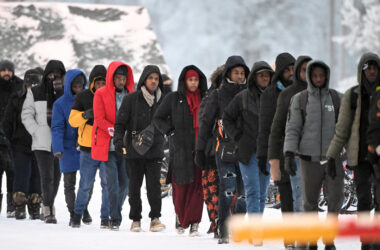A recent internal document from the Bundeswehr, cited by Der Spiegel, reveals that German weapons supplied to Ukraine are facing significant challenges on the battlefield.
According to the deputy military attaché at the German embassy in Kyiv, Ukrainian soldiers are struggling with the effectiveness of several key German-made systems, including anti-aircraft weapons, tanks, and artillery.
The report specifically highlights concerns about the Panzerhaubitze 2000 self-propelled artillery system, which is described as having “such high technical vulnerability that its suitability for warfare is seriously questioned.” The Leopard 1A5 battle tank, while considered “reliable,” is primarily being used by Ukrainians “only as improvised artillery” due to its weak armor. Additionally, the Leopard 2A6 tank’s repair costs are so prohibitive that on-the-ground repairs are often impossible.
While the IRIS-T air defense system is praised for its effectiveness, its high ammunition costs and limited availability have been significant drawbacks. The American-made Patriot system, while deemed an “excellent weapon system,” is considered “unsuitable for military use” due to the outdated vehicles by MAN and the lack of spare parts.
On a positive note, the old Gepard self-propelled anti-aircraft system, which had been withdrawn from German service, has emerged as the “most popular, effective, and reliable weapon system” for Ukrainian forces. The MARS multiple rocket launcher is also seen as a “game-changer” on the battlefield, though its inability to fire American cluster munitions makes it “only partially suitable.”
In summary, the report states that “hardly any major German military equipment is fully suitable for war,” reflecting ongoing challenges with the supplied weapon systems.




